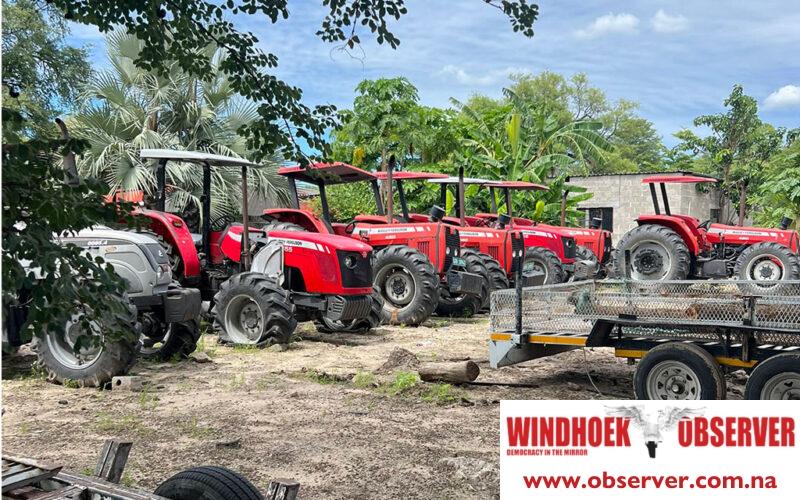Niël Terblanché
The Ministry of Agriculture, Water and Land Reform (MAWLR) has addressed concerns raised by McHenry Venaani, President of Namibia’s official opposition party, about the maintenance of its tractor fleet.
Jona Musheko, the MAWLR spokesperson, clarified the situation in a statement.
Musheko confirmed the Ministry’s commitment to the careful maintenance of all its fleets, including tractors.
The statement was a response to Venaani’s remarks on social media, where he urged the MAWLR to properly maintain its infrastructure instead of scrapping useful implements.
Venaani had claimed that the tractors had only minor issues but were being discarded and scrapped in favour of a new, allegedly defective fleet purchased from China for N$360 million.
Countering these claims, the MAWLR clarified that the tractors in question are at a service provider’s site in the Zambezi Region for minor mechanical repairs, scheduled for quick completion.
Musheko reiterated that there has been no scrapping of any tractors and maintained that the allegations of the new tractors’ defects are misleading.
“The fleet in question is part of the Ministry’s old fleet, not the 350 tractors procured in 2023 through NAMSIP,” he said.
NAMSIP, a significant initiative co-funded by the African Development Bank and the Government of Namibia, aims to enhance Namibia’s agricultural sector.
Although initially a five-year project set to conclude in December 2022, it was extended by 18 months due to various factors, including COVID-19 lockdowns.
A key achievement of NAMSIP is the procurement of 350 tractors to improve agricultural mechanization nationwide.
The project also focuses on training, with 438 farm machinery operators recruited and 152 already graduated.
This training is crucial for ensuring the effective use and maintenance of machinery, a vital component of modern agricultural productivity.
NAMSIP addresses challenges in Namibian agriculture, such as timely access to agricultural inputs, which is vital for crop production regions reliant on rain-fed farming.
By improving agricultural productivity, the project contributes to reducing annual imports of staple cereal crops and grains and creating job opportunities.
The Ministry of Agriculture, Water and Land Reform has reaffirmed its dedication to enhancing Namibia’s agricultural sector. By providing modern, efficient tools and training, the Ministry ensures that farmers can contribute effectively to the nation’s food security.
Musheko stated that the ministry remains committed to providing farmers access to ploughing services and other subsidized services, prioritizing the efficient use and maintenance of agricultural equipment for the benefit of farmers.




